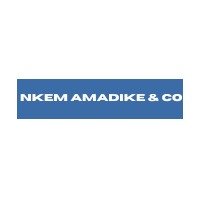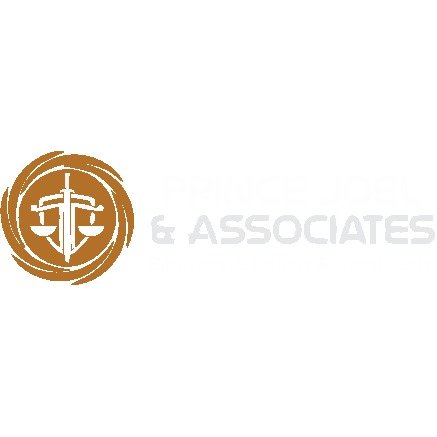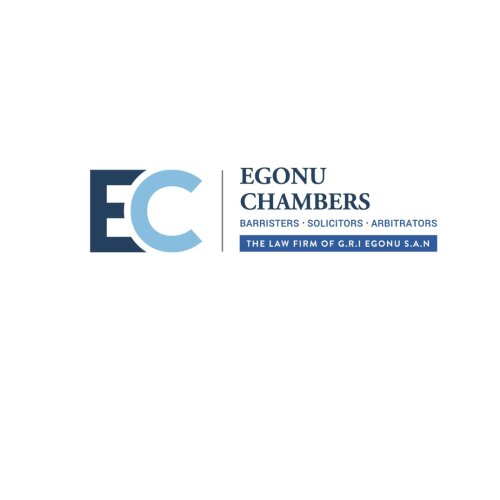Best Renewable & Alternative Energy Lawyers in Onitsha
Share your needs with us, get contacted by law firms.
Free. Takes 2 min.
List of the best lawyers in Onitsha, Nigeria
About Renewable & Alternative Energy Law in Onitsha, Nigeria
Renewable and alternative energy refers to energy sources that are naturally replenished, such as solar, wind, hydroelectric, and biomass. In Onitsha, a major commercial and industrial hub in Anambra State, interest in renewable energy is growing rapidly due to frequent power outages, high dependence on diesel generators, and environmental concerns. Legal frameworks around renewable energy regulate how such projects are developed, owned, financed, and maintained to ensure compliance with both Nigerian federal laws and relevant state regulations. These laws aim to encourage investment in clean energy while protecting the rights and interests of investors, consumers, and the environment.
Why You May Need a Lawyer
Engaging a legal professional can become necessary in various situations related to renewable and alternative energy in Onitsha. Common reasons include:
- Drafting or reviewing contracts for the sale, installation, or maintenance of solar panels, inverters, or other renewable energy equipment. - Securing permits and approvals from regulatory bodies for new energy projects. - Addressing disputes over land use, installations, or energy production between neighbors, businesses, or government entities. - Advising on compliance with environmental regulations and standards for energy projects. - Negotiating power purchase agreements between private off-takers, utility companies, or government agencies. - Navigating tax incentives or government grant opportunities for renewable energy investments. - Protecting intellectual property rights for innovative energy solutions or products. A legal expert ensures your transactions and projects remain within the bounds of local and national laws, helping you avoid costly disputes or penalties.
Local Laws Overview
In Onitsha, renewable and alternative energy is primarily governed by a combination of federal Nigerian laws and guidelines, as well as policies adopted by the Anambra State Government. Key aspects include:
- The Electric Power Sector Reform Act, which deregulates the energy industry and allows private participation. - The Nigerian Electricity Regulatory Commission (NERC) regulations, which issue licenses, set tariffs, and enforce quality standards. - Environmental Impact Assessment (EIA) Act requirements for certain categories of energy projects. - Local government permits for construction, installations, and usage of renewable energy systems. - The National Renewable Energy and Energy Efficiency Policy (NREEEP), setting out targets and incentives for green energy. - Land use regulations, especially where large solar farms or wind installations are planned. In Onitsha, access to public utility grids, street lighting projects, and residential or commercial renewable installations might also require compliance with specific city bylaws and coordination with the Enugu Electricity Distribution Company (EEDC).
Frequently Asked Questions
What types of renewable energy are most common in Onitsha?
Solar energy is the most popular, especially for homes and businesses facing power supply challenges. Some small-scale hydro and biomass projects also exist, but solar dominates due to abundant sunlight and easier installation.
Do I need government approval to install solar panels at my home or business?
For small, off-grid home installations, formal government approvals are typically not required. However, large or grid-connected systems may require permits from the local government or electricity distribution company.
Are there incentives or grants for installing renewable energy in Onitsha?
The federal government and some international organizations occasionally provide incentives, such as import duty waivers and access to financing. Stakeholders should stay informed about ongoing initiatives through state government and the Ministry of Power.
What laws regulate the sale of renewable energy equipment?
All sales and installation contracts are subject to Nigerian contract law. Imported equipment must meet national standards set by the Standards Organization of Nigeria, and vendors must comply with consumer protection laws.
Can I generate power and sell it to neighbors or into the grid?
Micro-grid operators or independent power producers can sell energy under certain conditions, but this requires licensing and approval from NERC and often the local distribution company.
What rights do tenants have to install renewable energy systems?
Tenants generally need the consent of their landlords before installing permanent renewable energy systems, as this may affect the property and its value.
Are there special environmental regulations for renewable projects?
Yes. Projects above certain capacity thresholds must conduct an Environmental Impact Assessment before beginning construction to ensure minimal negative environmental effects.
What are common legal disputes in renewable energy projects?
Disputes often arise over contract breaches, land ownership or access, non-performance by installers, faulty equipment, or disagreements over energy pricing or distribution.
How do I verify if an installer or vendor is reputable?
Request their business registration documents, check for relevant certifications or licenses, and ask for references from past clients. Some associations, such as the Renewable Energy Association of Nigeria (REAN), keep directories of vetted providers.
Who can help if I have a complaint about a renewable energy transaction?
You may contact the local consumer protection council, the Standards Organization of Nigeria, the Nigerian Electricity Regulatory Commission, or consult with a legal professional for dispute resolution.
Additional Resources
Several organizations and government bodies can provide valuable information and support for those engaging in renewable and alternative energy projects in Onitsha:
- Nigerian Electricity Regulatory Commission (NERC) for energy regulations and licensing. - Federal Ministry of Power for policy updates and grant opportunities. - Anambra State Ministry of Power and Water Resources for regional guidelines. - Standards Organization of Nigeria for product certifications. - Renewable Energy Association of Nigeria (REAN) for industry support and professional directories. - Enugu Electricity Distribution Company (EEDC) for grid connection processes and tariffs. These bodies offer guidance, technical standards, and sometimes dispute mediation or redress mechanisms.
Next Steps
If you are considering starting a renewable energy project or facing a legal issue related to alternative energy in Onitsha, it is important to:
- Gather all relevant documents, such as contracts, permits, and correspondence. - Identify the specific legal issue or assistance required, whether it is regulatory compliance, contract review, dispute resolution, or business setup. - Contact a qualified lawyer familiar with energy law and local regulations in Onitsha. Referrals from reputable associations can help you find a suitable legal expert. - Reach out to appropriate government agencies for clarifications on permits or requirements. - Consider consulting with professional associations for further guidance or to find vetted service providers. Taking these steps will help you navigate the legal landscape confidently and ensure the success and sustainability of your renewable energy efforts.
Lawzana helps you find the best lawyers and law firms in Onitsha through a curated and pre-screened list of qualified legal professionals. Our platform offers rankings and detailed profiles of attorneys and law firms, allowing you to compare based on practice areas, including Renewable & Alternative Energy, experience, and client feedback.
Each profile includes a description of the firm's areas of practice, client reviews, team members and partners, year of establishment, spoken languages, office locations, contact information, social media presence, and any published articles or resources. Most firms on our platform speak English and are experienced in both local and international legal matters.
Get a quote from top-rated law firms in Onitsha, Nigeria — quickly, securely, and without unnecessary hassle.
Disclaimer:
The information provided on this page is for general informational purposes only and does not constitute legal advice. While we strive to ensure the accuracy and relevance of the content, legal information may change over time, and interpretations of the law can vary. You should always consult with a qualified legal professional for advice specific to your situation.
We disclaim all liability for actions taken or not taken based on the content of this page. If you believe any information is incorrect or outdated, please contact us, and we will review and update it where appropriate.











